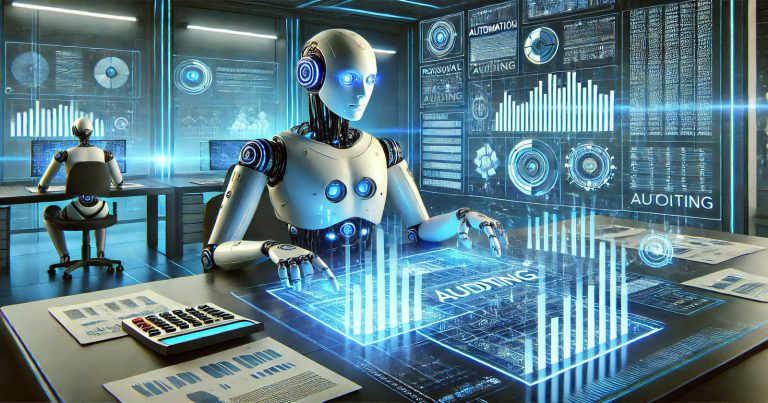Robotics and automation refer to machines, artificial intelligence, and advanced technologies that perform tasks humans typically complete. This discipline optimizes effectiveness, precision, and throughput across various sectors. Robotics and automation engineering are concerned with the design and development of these systems. Businesses invest money into this tech to save on expenses and streamline operations. Indeed, the robots and automation industry is booming, and new career paths are emerging. As a result, many students aspiring to join this sector are enrolled in robotics and automation courses. This results in lucrative robotics and automation salary packages as the professionals are in high demand. However, the future of robotics and automation holds even more innovation, with applications in healthcare, manufacturing, and construction.
What is Robotics and Automation?
One of the major beneficiaries of robotics and automation is manufacturing. Companies use automation systems to enhance efficiency and minimize mistakes. Machine workers do the tasks of assembling, welding, packaging, etc. These systems help produce more output faster—while maintaining homogeneity.
The Advantages of Robotics And Automation In Manufacturing
Robotics is introduced in factories to attend to repetitive work. This lowers the labour costs while improving the production.
- Machines can operate 24 hours a day without ever tiring. They enhance workplace safety by minimizing human exposure to dangerous situations.
- Manufacturers utilize robotics and automation technology to have precision and speed. This helps reduce waste and maximize resource usage.
- Robots with advanced Artificial intelligence capabilities are making factories more efficient.
- In factories, robotics and automation applications such as robotic arms, automated conveyor belts, and smart sensors are integrated. Robots with arms perform complex assembly operations.
- Automated belts precisely transport materials. Sensors on production lines detect defects in real-time.
Robotics and Automation Companies
Some of the most innovative solutions for industries come from the leading robotics and automation companies. These companies build robots to assemble cars, create electronics, and manufacture consumer products. Tesla, Siemens, and ABB are the giants of the industrial automation world.
Impact on the Workforce
Automation and its impact on manufacturing work roles Workers upskill from manual labour to supervising positions. Many professionals upskill to stay relevant in the job market by earning a robotics and automation degree.
Trends and Innovations in the Future of Robotics and Automation
Exciting Innovations: The Future of Robotics and Automation Advances in automation are powered by AI, ML, and IoT. Smart robots are adopted in different industries to make automation smarter.
Trends in robotics and automation
You can see trends such as collaborative robots (cobots) in industries; these robots work alongside humans. These are AI-based robots that develop a knack for different environments. Mobile robots in warehouses and logistics are exploding. You are a healthcare robot or automation professional.
Robotics in Healthcare
The use of robotics and automation in healthcare reshapes medical fields. The surgical robots aid in the most complex surgeries with great accuracy. Pharmacy automation system dispenses medications accurately. AI-based diagnostic solutions identify early-stage diseases, resulting in better patient outcomes.
Robotics in Construction
Enhancing productivity through robotics and automation in construction Robots do things like bricklaying, welding and inspecting a site. It reduces labour-intensive work and helps speed up construction projects. You can survey sites with drones and monitor progress in real-time.
A Near Future of Robotics in Everyday Life
Automation impacts everyday tasks. Artificial intelligence (AI) has made smart home devices, robotic vacuum cleaners, and AI assistants that help us around the house. We live with self-driving cars, automated checkout systems, and intelligent traffic management.
Demand for Robotics and Automation Professionals
In this fast-moving technology environment, organizations are desperate for talent. The jobs in robotics and automation attract engineers, software developers, AI specialists, etc. The field requires specialized degrees and certifications.
Careers in Robotics and Automation
The need for skilled experts in robotics and automation jobs is still growing. This means that industries need professionals to create, build, and handle automated systems. This field has various career options and pays well,
High-Demand Job Roles
Work opportunities for graduates with a robotics and automation degree include automation engineers, robotics technicians, AI specialists, and system integrators. These include programming robotic systems, creating and developing AI models, and automating solutions.
Salary Insights on Robotics and Automation
These can include salary range (depending on experience and expertise), benefits, other bonuses, and possible advancement opportunities. Entry-level engineers are offered companies with competitive packages, while increasingly experienced professionals take home rich compensation. Due to industry demand, robotics engineers, AI specialists, and automation consultants are at the top of the salaries.
Revolutionary Industries, where the Robotics profession is hired
Robotics experts are wanted in several industries. Manufacturing companies, healthcare organizations and tech firms hire automation specialists. Innovative minds are needed to develop cutting-edge robotics solutions, so there is a demand for Startups and research institutions.
Victims of Hate: The Diverse Faces of Discrimination
People wishing to become experts in robotics and automation are taking up a robots and automation course. Special programs at universities and technical institutions and strong incentives to stay updated with online courses and certifications allow professionals to upskill and remain in line with industry trends.
The Advantages of Robotics and Automation
Robotics and automation are beneficial to various sectors. At least industries get better efficiency, accuracy, and cost savings by implementing some automated solutions.
- Enhanced Productivity and Precision: Automation increases productivity by performing work quicker than people. Robots perform the same task with great precision, reducing the margin of error. Companies play this game to ensure consistent quality in manufacturing or services.
- Increased Efficiency and Resource Optimization: Industries cut down costs by doing away with manual labour and eliminating waste. Machines optimize them to use resources effectively. Long-term financial benefits are the reason why businesses are investing in robotics.
- Enhanced Safety and Work Environment: Automation makes workplaces safer. Robots perform dangerous jobs, decreasing the number of injuries in the workplace. Manual labour has been reduced, and employees operate in safer settings while automated technologies handle risky tasks.
- How to Uncloud Your Head: Innovation and Technological Advancement. Automation drives innovation. Businesses invent new technologies to create efficiencies. AI-powered robots, smart sensors, and self-learning systems revolutionize industries.
Relevance to ACCA Syllabus
AI is revolutionizing financial management, audit, and risk assessment. In financial management, for instance, AI-enabled automation boosts efficiency in bookkeeping, compliance, and fraud detection — all of which corresponds with ACCA’s emphasis on economic management, risk analysis, and the ethical considerations of digital finance. A clear understanding of AI helps ACCA students cultivate strategic decision-making skills in financial reporting and business analysis.
Robotics and Automation ACCA Questions
Q1: What are the benefits of artificial intelligence in businesses’ financial reporting?
A) Impairs accuracy of financial records
B) Reduces paperwork
C) Makes accountant’s job unnecessary
D) Speeds up creation of the financial statements
Ans: B) Reduces automation and efficiency.
Q2: Which AI application is used for detecting fraud in financial transactions?
A) Chatbots
B) Natural Language Processing(NLP)
C) Machine Learning algorithms
D) Manual bookkeeping
Ans: C) Machine Learning algorithms
Q3: What is the role of AI in improving internal audits for companies?
A) Eliminating the necessity of internal auditors
B) Enhancing data analysis and anomaly detection
C) Fully automating all human decision-making
D) Reducing adherence to accounting standards
Ans: B) Enhancing data analytical ability and anomaly detection
Q4. What is one important ethical issue regarding using AI in financial decisions?
A) AI will lower costs
B) AI will bring full transparency
C) AI may introduce discrimination in decision-making
D) AI can work without data
Ans: C) there can be biases in decision-making in AI
Q5: How does AI assist in the risk management sphere in financial firms?
A) Just like analyzing large data sets for potential risks,
B) Increasing manual data entry,
C) Getting rid of cybersecurity threats,
D) Replacing financial analysts
Ans: A) Using big data analytics to identify potential risks
Relevance to US CMA Syllabus
AI Revolutionizing Management Accounting and Strategic Financial Management The US CMA syllabus emphasizes planning, costing, budgeting and control, all of which require budgeting as a tool. AI-powered automation and predictive analytics empower organizations to strengthen decision-making and advance financial planning.
Robotics and Automation ACCA Questions
Q1 How does AI assist in financial forecasting?
A) Through the analysis of past data to make predictions
B) By eliminating trends in previous data
C) By avoiding an audit
D) By introducing errors in financial statements
Ans: A) Through the analysis of past data to make predictions
Q2: What AI technology is used to improve budgeting and financial planning?
A) A machine learning
B) Paper-based bookkeeping
C) Traditional spreadsheet
D) paper-based financial report
Ans: A) Machine Learning
Q3: How much do businesses save due to AI?
A) Increasing number of employees required for manual work
B) Automating recurring processes
C) Ignoring financial metrics
D) Increasing paperwork
Ans: B) Automating recurring processes
Q4: What is the benefit of AI-driven analytics in controlling organisational costs?
A) Through spending analysis and waste reduction
B) removing the need to audit
C)To avoid having to plan a budget
D) To prevent all market risks
Ans: A) Analyzing spending patterns and minimizing waste
Q5: What is a big weakness in management accounting AI?
A) AI gives real-time insights
(B) AI only works under human supervision
(C) AI has no guarantee of 100% correct results
(D) AI makes decisions based on data
Ans: B) AI is only as good as humans allow it to be
Relevance to US CPA Syllabus
US CPA syllabus includes accounting, auditing, and taxation, and AI is changing the field. These AI-driven tools can improve audit procedures, tax compliance, and fraud detection. AI comprehension sets CPA candidates for tomorrow’s technology-led financial services.
Robotics and Automation CPA Questions
Q1: How will AI change the audit process?
A) Increasing audit efficiency and fraud detection
B) Removing all human auditors
C) Replacing financial reporting
D) Making audits irrelevant
Ans: A) Enhance feedback efficiency & fraud detection
Q2: What is an AI-powered tool that helps with tax compliance and reporting?
A) Blockchain-based technology
B) Artificial intelligence-guided tax filings
C) Manual tax preparation
D) Traditional handwritten audit
Ans: B) AI-based Tax Software
Q3: What is the major advantage of AI in forensic accounting?
A) AI could detect anomalies and fraudulent transactions,
B) AI could phase out requirements for data security, and
C) AI makes sure businesses are never put in a risk situation.
D) AI would do away with the use of financial data
Ans: A) AI helps in identifying anomalies and fraud transactions
Q4: In what way does AI enhance financial audits?
A) Automation of data analysis and reduction of human error
B) A rise in financial frauds
C) A reduction in transaction transparency
D) Neglecting audit risks
Ans: A) Through automation of data analysis and minimizing human error
Q5: What is one primary issue with applying AI to accounting?
A) Ethical concerns and data privacy issues
B) AI eliminates all financial reporting errors
C) AI means that businesses no longer need to have audits
D) AI does not depend on financial data
Ans:D) AI does not depend on financial data
Relevance to CFA Syllabus
AI significantly impacts financial analysis, investment management, and risk assessment, all vital components of the CFA exam. For instance, investment professionals may leverage AI-driven financial models to analyze vast data, identify market trends, and refine portfolio management strategies.
Robotics and Automation CFA Questions
Q1: What is the role of AI in investment management?
A) Market data analysis for decision enhancement
B) The invalidation of every investment risk
C) The disregard of financial modelling
D) The displacement of human influence on portfolio management
Ans: A) To make better business decisions by analyzing the market data.
Q2: What common AI tech is used in algorithmic trading?
A) Algorithmic Trading
B) Paper trading
C) Predictive Market analysis
D) Human data intervention
Ans: A) Machine Learning
Q3:In what way does AI improve investment firms’ risk management capabilities?
A) By analyzing large datasets to detect potential risks
B) By eliminating all investment risks
C) By making human risk managers obsolete
D) By ignoring market trends
Ansr: A) By analyzing large datasets to detect potential risks


